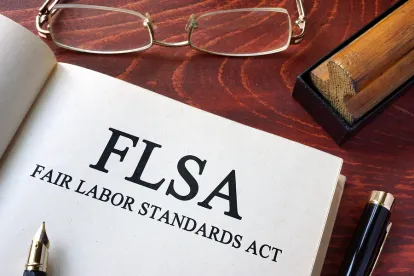The Fifth Circuit recently became the first federal court of appeals to hold that employees who signed arbitration agreements should not receive notice of collective actions. This case of first impression among the courts of appeal could serve as a powerful tool for employers combatting collective actions under the Fair Labor Standards Act (FLSA). Accordingly, we think the decision is deserving of more detailed analysis than a mere summary.
A Splintered Approach
In recent years, courts have increasingly wrestled with the impact of arbitration agreements at the conditional certification stage of FLSA cases. On the one hand, the U.S. Supreme Court has endorsed a liberal policy in favor of upholding arbitration agreements. On the other hand, many lower courts hold that plaintiffs need only make a “modest factual showing” to obtain conditional certification of a class of “similarly situated” employees who will receive notice of an “opt-in” FLSA class following the conditional certification stage.
This tension caused federal district courts to splinter over whether notice of FLSA collective actions may be sent to employees with arbitration agreements. Three main approaches emerged in the lower courts:
-
Some courts excluded individuals who had signed arbitration agreements from receiving notice.
-
Some courts ruled that all employees had an individual right to receive notice, even if they had previously signed arbitration agreements.
-
Other courts relied on the possibility that the arbitration agreements were unenforceable to find that all employees should receive notice of the collective action.
The Fifth Circuit’s Decision
The Fifth Circuit weighed in on these approaches in In re JPMorgan Chase & Co., 916 F.3d 494 (5th Cir. 2019), holding that district courts should not send notice of FLSA collective actions to employees who signed valid arbitration agreements.
In the case, the plaintiffs alleged that JPMorgan Chase failed to pay wages for off-the-clock work to 42,000 call center employees. However, about 35,000 of these employees — or 85 percent of the purported class — had signed agreements with the employer requiring individual arbitration of all employment claims. Despite the employer’s opposition, the district court allowed notice to be sent to all 42,000 employees.
On a writ of mandamus, the Fifth Circuit held that the district court erred in issuing notice to employees with arbitration agreements.
According to the Fifth Circuit, district courts do not have “unbridled discretion” to send notice to potential opt-in plaintiffs. Because the arbitration-bound employees are not eligible to participate in the lawsuit, they should not receive notice of the claims. To hold otherwise would merely stir up litigation, which the U.S. Supreme Court flatly proscribed in Hoffman-La Roche Inc. v. Sperling, 493 U.S. 165 (1989).
The Fifth Circuit then set forth the steps that district courts should follow when evaluating whether arbitration-bound employees should receive notice.
First, if there is a genuine dispute as to the existence or validity of an arbitration agreement, the employer has the burden to show by a preponderance of the evidence that there is a valid arbitration agreement as to any particular employee. District courts should allow the parties to submit additional, “carefully limited” evidence to resolve this dispute.
If the employer meets this burden, the district court should not notify the arbitration-bound employees at issue. However, if the employer fails to establish the existence of a valid arbitration agreement, that employee should receive the same notice as other employees.
Business Implications
Employers should pay attention to several key takeaways from this case.
First, this ruling underscores the importance of requiring employees to sign arbitration agreements containing class action and class arbitration waivers. Employees should be required to sign these agreements before they begin working.
Second, employers should specify in their arbitration agreements what state law applies. This will allow the district court to properly analyze whether the employee entered into a valid arbitration agreement, since this determination is a question of state contract law.
Third, employers should keep adequate records of these agreements. This will allow the employer to easily satisfy the burden put forth by the Fifth Circuit.
Last, this decision demonstrates that several important, unanswered questions remain in the world of FLSA collective actions and arbitration agreements. For example, the Fifth Circuit failed to clarify when threshold issues regarding the validity of arbitration agreements should be resolved, whether in proceedings preliminary to collective certification or as part of collective certification briefing. And although the Fifth Circuit cautioned that additional evidence on the enforceability issue should be “carefully limited,” the boundaries of this evidence remain unclear.
Despite these unanswered questions, employers who use binding employment arbitration agreements should be able to use the Fifth Circuit’s opinion as a powerful tool to combat FLSA collective actions.





 />i
/>i

